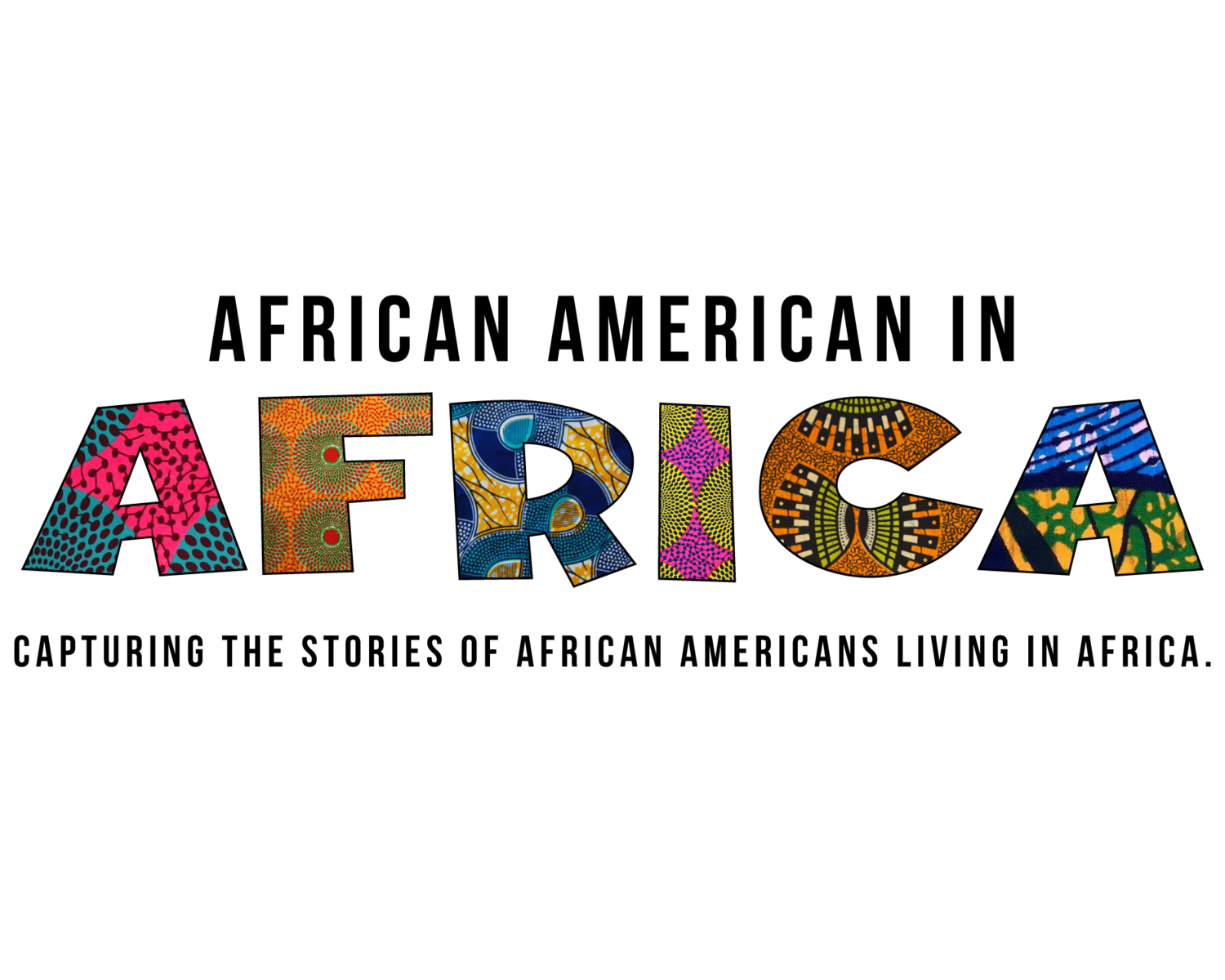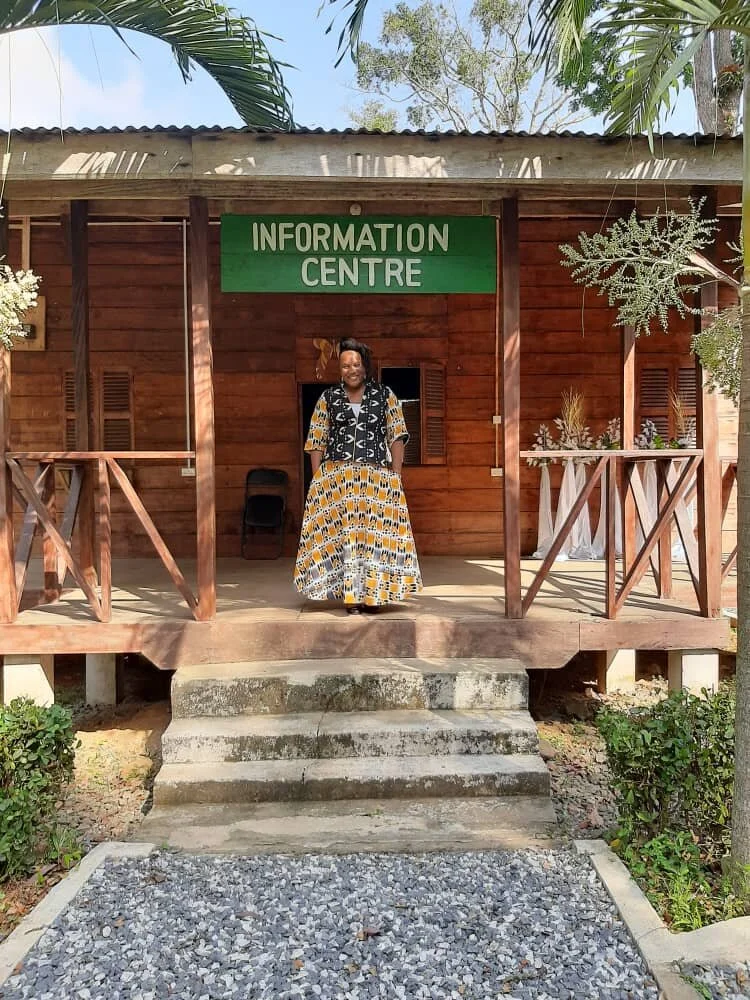Year of Return: I was awarded Ghanaian citizenship!
Akosua Boateng [second from left] was one of the 126 African diasporans to be granted Ghanaian citizenship as part of the 2019 #YearofReturn celebrations in #Ghana.
If you’re anything like us, you’re still beaming from those images of diasporans becoming Ghanaian citizens last November! We decided to chat with Akosua Boateng, one of the 126 recipients, about her interview process and the swearing in ceremony that had so many of us weeping. Just three years ago, we also interviewed Akosua about her experiences as an African American living in Ghana. So we had to track her down to get the full rundown on her new status as a Ghanaian.
The following is our abbreviated conversation, but be sure to listen to our full chat right here!
The application process
How did the opportunity for citizenship come about for you?
There’s an organization in Ghana called the Ministry of the Future. They are the organ that was responsible for 34 African Americans becoming citizens three years ago under President John Mahama.
The Ministry of the Future was founded by a group of diasporans. However, it’s leader is Dr. Hamet Maulana and Mrs. Millie Tucker. For the most part, they’ve been a two-man team leadership. They worked 24 hours around the clock trying to push this envelope of citizenship forward, to the point of being hospitalized. It’s almost like they have the battle scars to show for it.
The Ministry of the Future submitted my application along with 252 other applications. Of those 252 applications, the first batch to be sworn in was the 126 that were recently celebrated on November 27th, 2019. They are feverishly working to ensure that the remaining applications that were approved by the president also have an opportunity to be sworn in.
[From left] Akwasi Awua Ababio, Diaspora Affairs, Office of the President (Ghana), Akosua Boateng, Akosua Magee-Nzingha Imakhus, One Africa, and Rabbi Kohain, Diaspora Coalition.
Was this the first time that Ghana has awarded or given citizenship to African diasporans?
According to history, there have been several times. For example, W.E.B. Dubois was made a citizen of Ghana [in 1963] by executive order of the president.
Ghanaian immigration has a normal process to integrate foreigners into becoming nationalized. However, the diasporans of my group that were recently sworn in is the first attempt by the Ghanaian government to atone for the holocaust that happened here in Ghana. Ghana is also the first country to recognize that there is a reintegration of diasporans that needs to occur in an official way.
When did you submit your citizenship application?
I submitted my application sometime in 2017. There were others who submitted applications way before I did. There was a window that the Ministry of the Future opened to receive applications and I’m pretty sure I was on the tail end of it.
What was that application like?
The application consisted of basic information about who you are, your personal details, details about your family members, and questions about how long you’ve been in Ghana. It also asked questions about the achievements that you’ve been able to accomplish as a result of being in Ghana and how much money have you contributed to the country. The application also asked about your employment in Ghana. It was a two-page application and you had to accompany it with your passport and an accompanying ID.
How were you notified about your interview?
I was contacted by Mrs. Tucker who informed me that interviews were going to begin for those diasporans who submitted their applications with the Ministry of the Future. From there interviews were eventually scheduled. We were interviewed by about ten or eleven people from different governmental agencies.
What WAS your interview was like?
It was a very relaxed conversation of questions. They asked me where I live and what I did professionally. While I was nervous it was very relaxing. They just asked common questions that we should have the answers to.
It just so happened that I lived in Agogo, Ghana, a popular place. I can remember one of the jokes the panel asked me who was the son of Agogo. I told them it was a very famous musician named Amakye Dede of course. Then I told them we have five other Agogoan musicians and many children in Agogo that are equally very good musicians. So I just started naming them all just to let them know I’m not passing through. I’m a part of this community.
How were you feeling during that two year window of waiting to hear back about your citizenship application?
I was nervous and a bit anxious. However, I was also confident in the leadership because the Ministry of the Future is an organization that had already chartered the way for the first 34 diasporans who were granted citizenship earlier.
A platform was also created to keep us updated and they were very honest and timely. As people became more and more anxious they would reassure us that they were waiting to hear from the government.
Fast forward to 2019, how were you notified that your citizenship application had been approved?
About two and a half months after my interview Mrs. Tucker reached out to me and informed me that my application had been approved. I was very emotional and teary-eyed. It was like it was not real. I stayed very quiet and didn't really tell anybody. I just kept praying that everything would work out. So, after it was approved, I was told to stand by for more information.
In the meantime, the Ministry of the Interior and the Ministry of Foreign Affairs had to organize our swearing-in process. So we were on standby and then we finally received the dates of when we’d be sworn in which was November 27th. We were also given some instructions to follow in terms of protocol.
The ceremony
Let’s talk about the swearing-in ceremony on November 27th. What was the atmosphere at the ceremony like? What did it entail?
On the actual day, I cried. I was very emotional and trying to get myself together. All the diasporans getting sworn in were given a set of instructions. One rule was that we could not bring our cameras and that they would have photographers there. We were also only allowed to bring one guest.
I knew what I was about to partake in was on behalf of my entire family and it was monumental. I was in constant communication with my ancestors—like in a real dialogue.
The ceremony began with a welcome. They showed a short film with different diasporans about what it means to have citizenship. They introduced the different dignitaries. I think everyone had a chill when they announced the U.S. ambassador was in the room. No one clapped. Everyone had a look like, “Why is he here at our ceremony?” However, having worked in government I knew it was just protocol. When the ambassador for Cuba was called everyone started cheering.
I have to give the utmost respect to the president of Ghana Nana Akufo-Addo because he kept it 100 percent real. He said “Peter Tosh has a quote which says, “It doesn’t matter where you come from, as long as you’re a Black man, you’re African.” And then he played the song. Then there was base and reggae throughout the room. It was like you could feel Peter Tosh singing. The ceremony itself was indescribably African. There was music throughout it.
That’s incredibly powerful and beautiful. What was the rest of the day like?
After that, the event turned into a party. But first, each person was called in to collect their documents and we also got to take a photo with the president [of Ghana]. That was another bonus for me because I was like wow, I’m sitting next to the president. This is deep!
When it was my turn, I held his hand and held his elbow which in Ghana is the highest way to say thank you to someone.
Later, it turned into a party at the Jubilee House’s lawn. This was the first time we as diasporans had really seen ourselves collectively. We know that we exist and read about each other in different news coverage, but for all of us to be in the room at the same time was very powerful.
Looking ahead
How does getting Ghanaian citizenship change things for you?
Every time we come in and out of the country we pay $100 for a visa. If you’re gonna be in the country you have to pay for a resident permit. If you work in the country you have to pay for a work permit. All of these credentials happen with expiration dates of which you’re constantly renewing. You have to get a non-Ghanaian citizenship card which you are constantly paying. Those things alone are about $2000 just to make you legitimate.
If you’re a foreigner you can’t participate in retail. I couldn’t go to the bank and get a loan as Ghanaians do. Even though I’ve worked here for years and I make a pretty good income I couldn’t access any kind of financial power.
What has the reaction of Ghanaians been to your citizenship news?
The best reaction I could ever receive. The ceremony was broadcast live throughout the country and many Ghanaians called me to say I looked beautiful. They said that they really liked the dress I wore and my hair and that they were proud of me. These were things I had been worried about as I got ready that morning. Then I felt proud because I felt like I did Ghana proud. I hadn’t put myself in a situation that people would find culturally inappropriate. I didn’t make myself a debate surrounded by cultural sensitivity.
When you think of your ancestors who didn't get to make the trip back what does all of this mean?
It just means that I have a bigger responsibility to myself.

![Akosua Boateng [second from left] was one of the 126 African diasporans to be granted Ghanaian citizenship as part of the 2019 #YearofReturn celebrations in #Ghana.](https://images.squarespace-cdn.com/content/v1/5a8f08050abd04c52690ccd1/1578301282244-UJ49ANLR0Z0EE9VBNX78/WhatsApp+Image+2020-01-03+at+6.36.08+PM.jpeg)
![[From left] Akwasi Awua Ababio, Diaspora Affairs, Office of the President (Ghana), Akosua Boateng, Akosua Magee-Nzingha Imakhus, One Africa, and Rabbi Kohain, Diaspora Coalition.](https://images.squarespace-cdn.com/content/v1/5a8f08050abd04c52690ccd1/1578378645472-JFB6MMF9578TRJHZ8S9T/WhatsApp+Image+2020-01-05+at+9.10.14+AM.jpeg)


